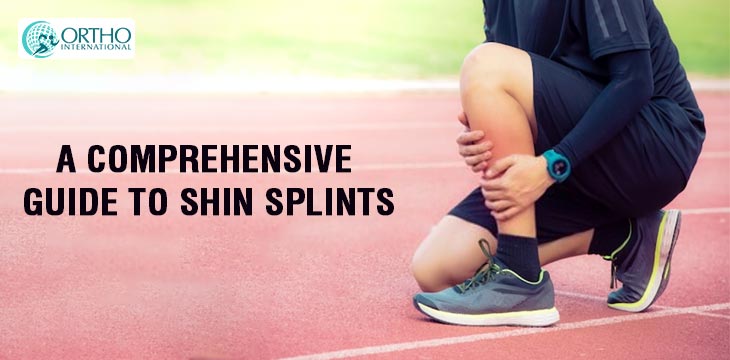The term “shin splints” expresses pain observed along the face of the lower leg, at the shin bone. This pain intensifies in the lower limb between the knee and the ankle and physician quite often relate it to the situation such as medial tibial stress syndrome (MTSS).
Shin splints often hit people who are involved in moderate to heavy mechanical activity. Individuals who may be more likely to develop shin splints are engaged in vigorous physical activities or stop-start games such as tennis, racquetball, soccer, or basketball. Seldom the pain of shin splints can be so severe that you must stop the enterprise. Shin splints are a cumulative anxiety disorder. Repeated pounding and pressure on the bones, tissues, and joints of the lower legs inhibits the body from being equipped to simply repair and recover itself.
What Causes Shin Splints?
The pain linked with shin splints occurs from excessive degrees of force on the shinbone and the muscles connecting the shin bone to the muscles encompassing it. The extreme force makes the muscles to swell and raises the stress against the bone, pointing to pain and inflammation. the disorder can also happen from stress responses to bone fractures. The constant pounding can produce minute cracks in the bones of the leg. The body can restore the cracks if given time to relax. Nevertheless, if the body doesn’t get a chance to rest, the tiny fractures can end in a complete fracture or a stress fracture.
Who Is At Risk For Shin Splints?
Many exercises and physical attributes can put you in danger of getting shin splints. Risk factors also include anatomical abnormalities like flat foot syndrome, muscle weakness in the thigh, lack of flexibility, muscle weakness in the thighs or buttocks, improper training techniques, going downhill, moving on a slanted exterior or uneven ground, using unsuitable or worn-out shoes for moving or working out, engaging in sports that have fast halts and starts, etc. Women, people with flat arches or rigid curves, athletes, military trainees, and dancers all have an enhanced possibility of developing shin splints.
Symptoms Associated With Shin Splints
People with shin splints will encounter some of the subsequent signs like a dull pain in the front part of the lower leg, pain that begins during training, pain on each side of the shin bone, muscle pain, pain adjacent the inner part of the lower leg, tenderness or soreness along the inside part of the lower leg, swelling in the lower leg, numbness and vulnerability in the feet, etc. If your shin splints don’t react to common treatment methods or if you’re encountering any of the latter signs like the severe pain in your shin after a fall or collision, a shin that feels hot, visibly swollen shin and pain in shin even when one is resting.
Remedies Related To Shin Splints
Shin splints commonly require that you take a rest from certain physical activities and give your limbs time to relax. The distress will usually settle perfectly in a few hours or at greatest in a few days with rest and restricted activity. The recommended amount of downtime is typically about two weeks. During this period, you can join in sports or actions that are less inclined to cause further harm to your legs. These exercises include swimming or walking and your doctor may recommend that you do the following like hold your legs in the raised position, apply ice packs to reduce inflammation.
Reference
If you are looking for sports injury treatment in Delhi, try meeting Dr. Abhishek Mishra, the best orthopedic surgeon in Delhi. He can help you in getting treated for various sports related injury like ankle sprain, knee injury, tennis elbow, groin pull etc.
